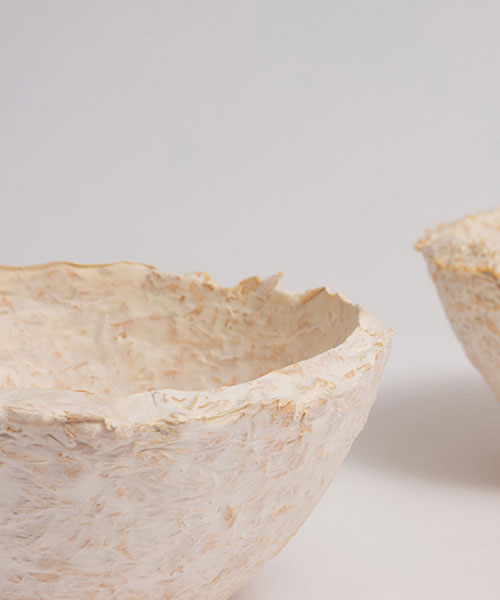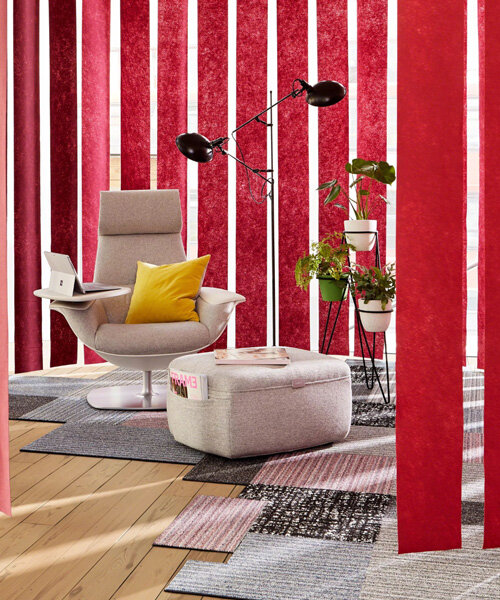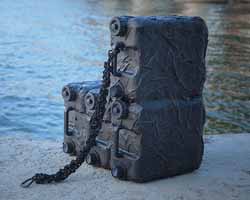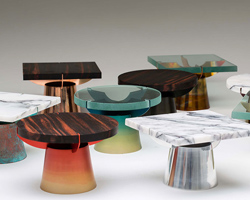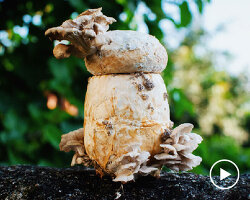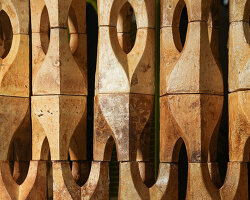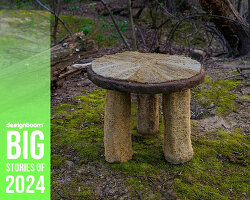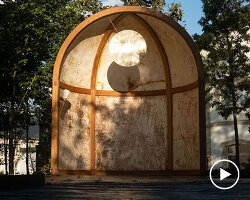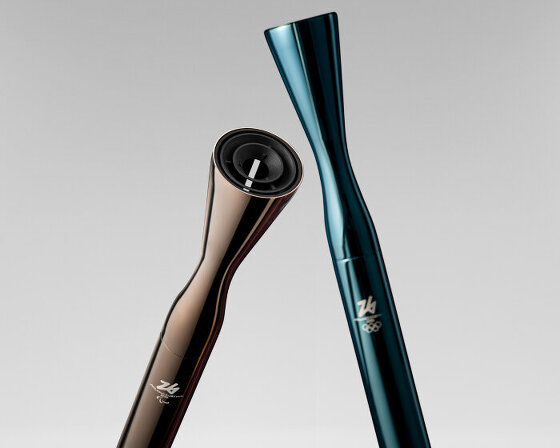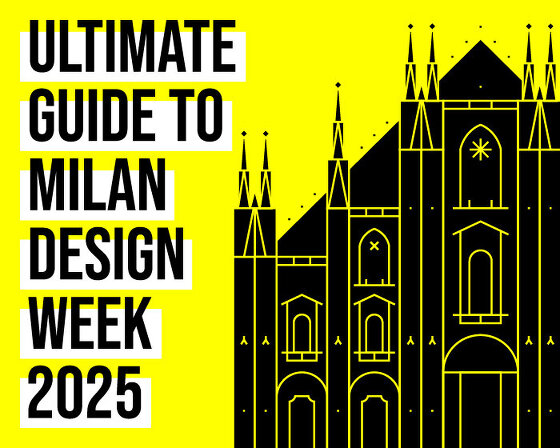seoul-based studio craft combine designed a collection of containers made of mycelium, a biodegradable material, through a collaboration with bio lab seoul, a public biology laboratory. in the project, pottery is seen as a morphological motif that made rapid progress in the life of prehistoric humans. this way, the designers hope that new environmentally-friendly materials, such as mycelium, will once again revolutionize human life.
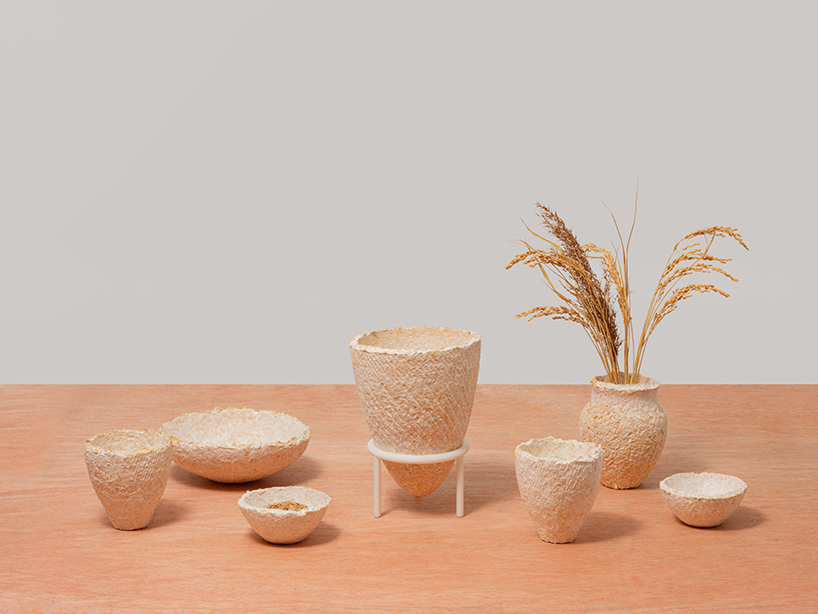
the designers discovered that mycelium is a self-sustainable natural material that can be combined with agricultural byproducts to grow into composite materials. the material, a fungus-like bacterial colony, grows through a natural and uneven process. this makes it difficult to obtain a consistent form and finish because the growth control process is not regular. however, craft combine took advantage of this characteristic to create unique pieces that vary in texture, color and shape.
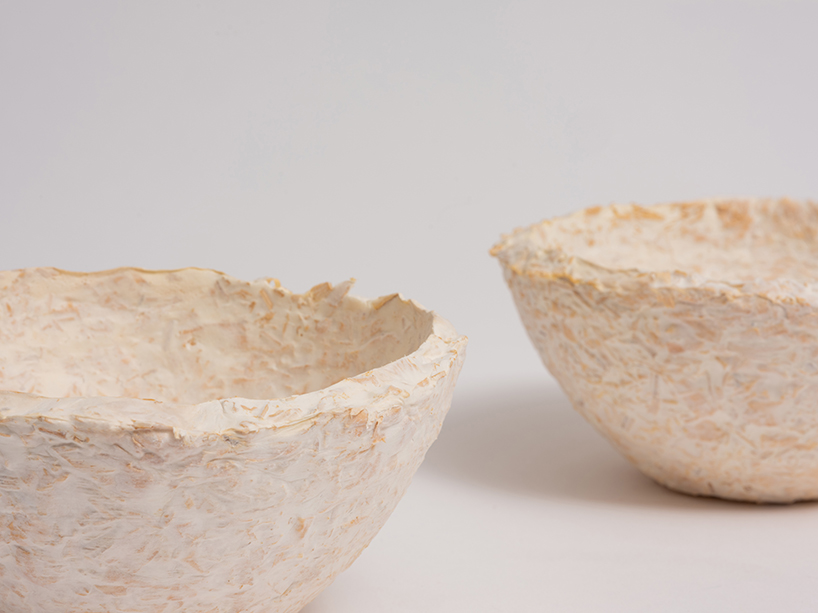
mycelium, which is mixed with straw to give the objects strength and structure, was grown inside a 3D printed mold to create the homeware collection. the different pieces have varying shapes and textures, which imitate pottery’s unique handmade look. in particular, the comb-pattern pottery was applied to mycelium ware to reveal the pottery belonging to the neolithic age found in the korean peninsula.
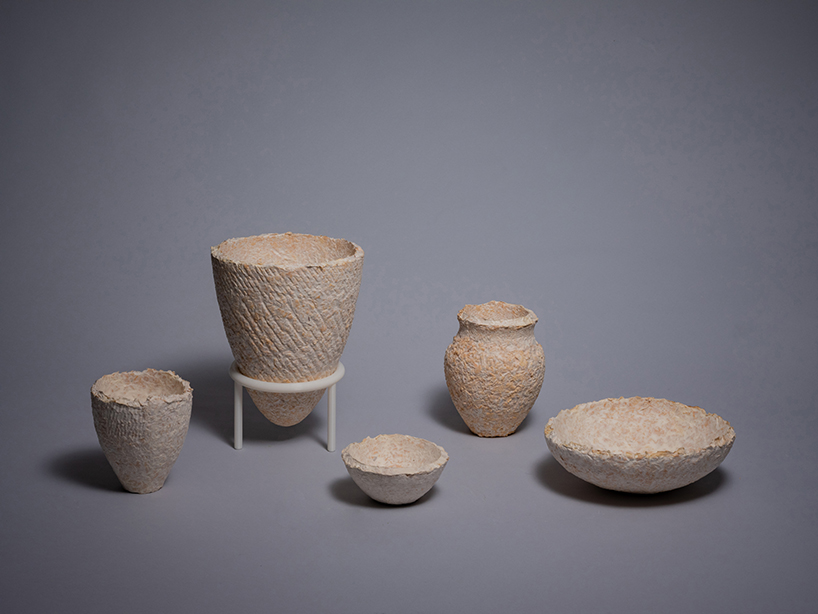
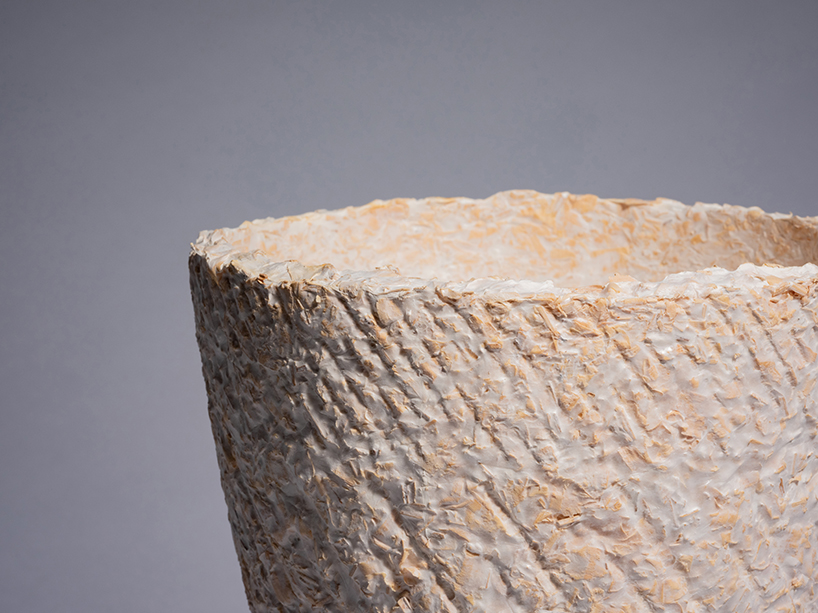
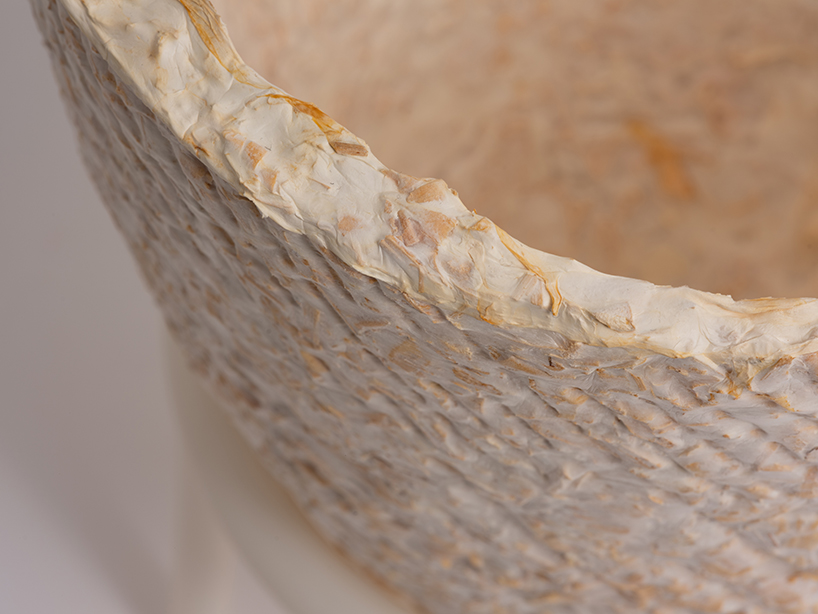
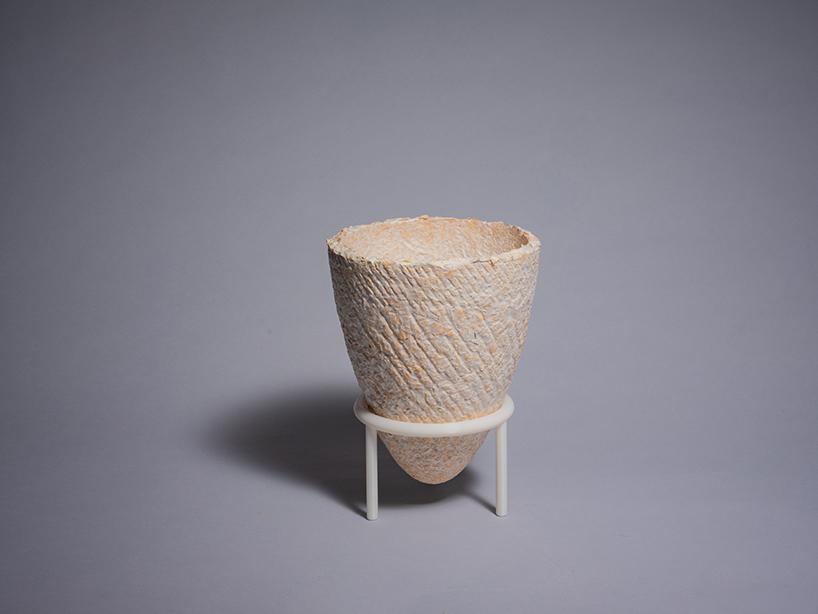
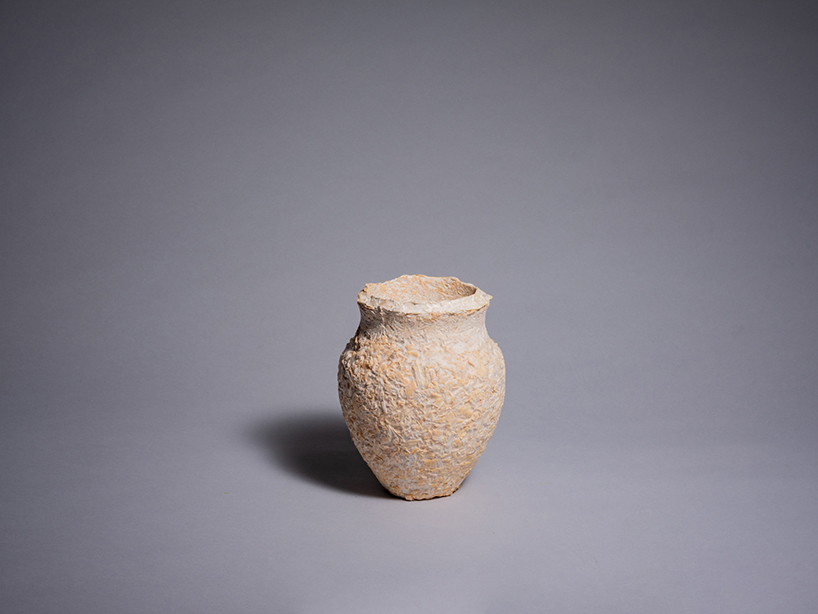
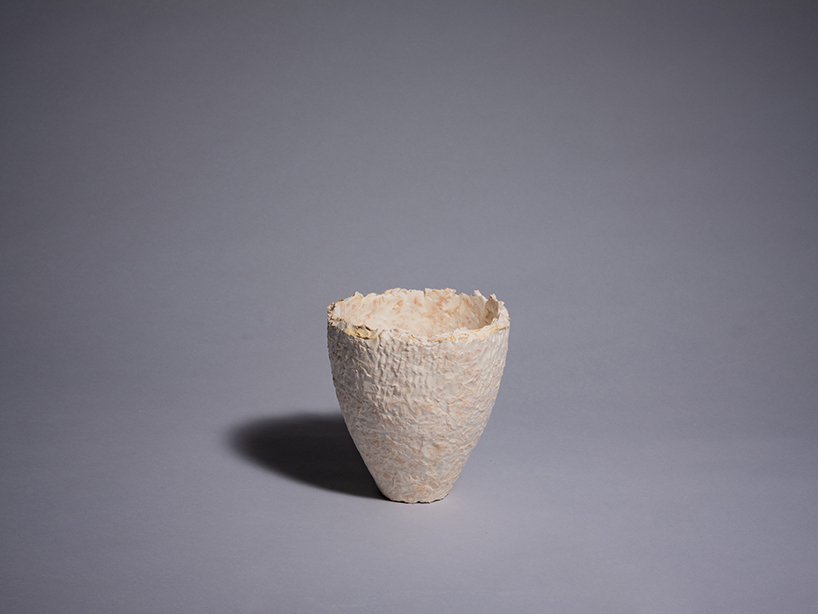
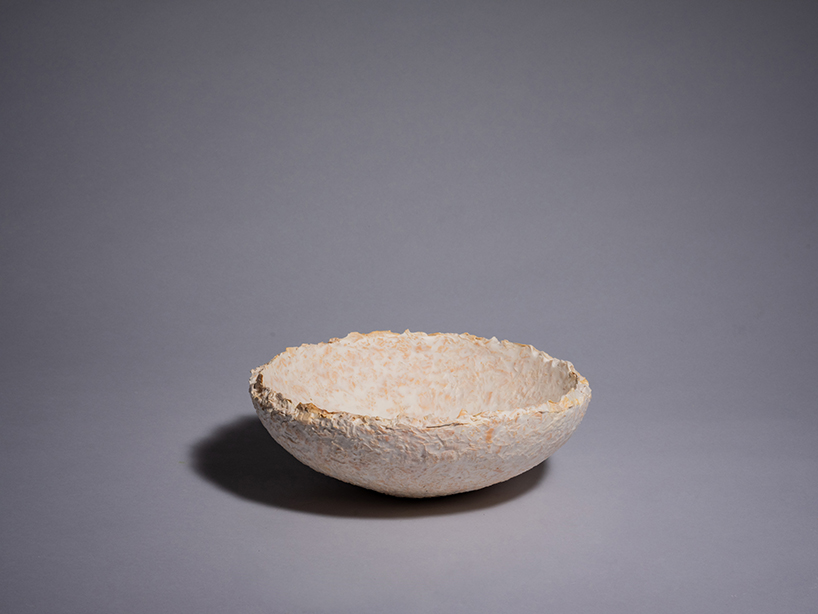
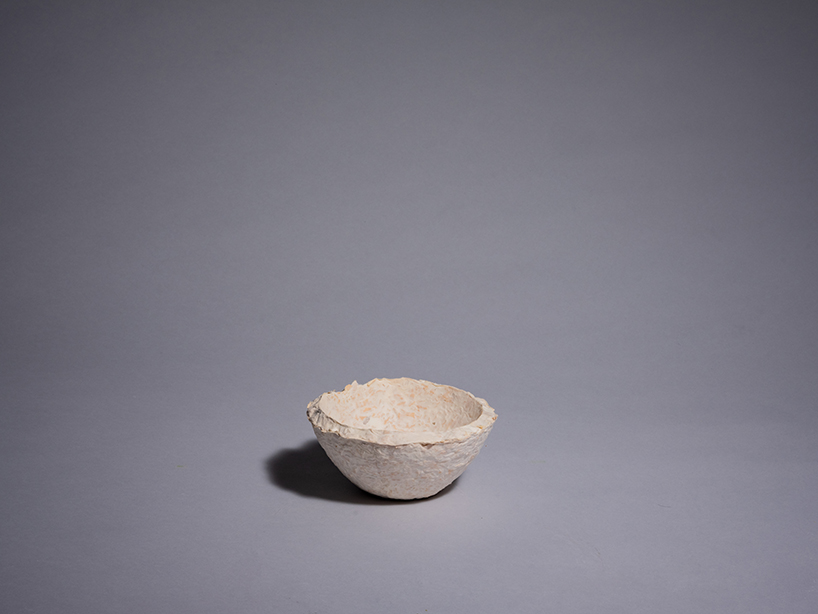
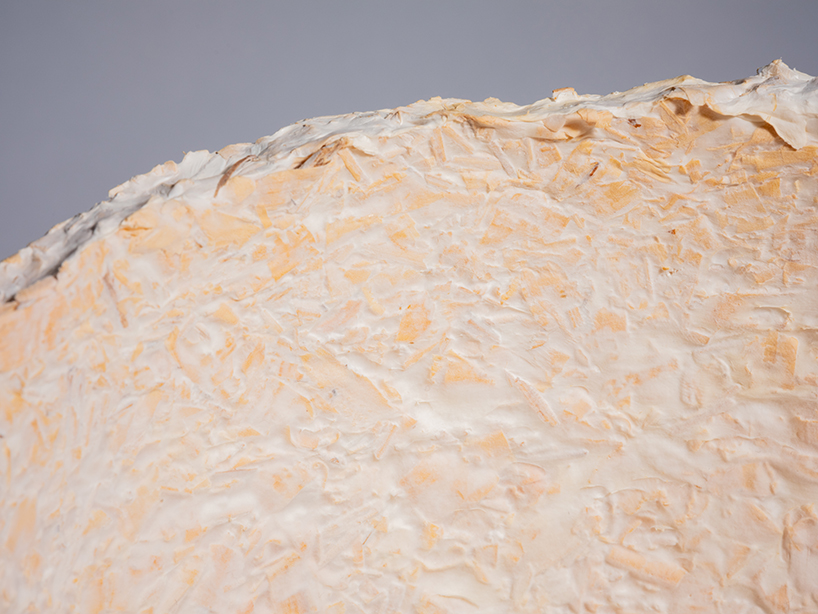
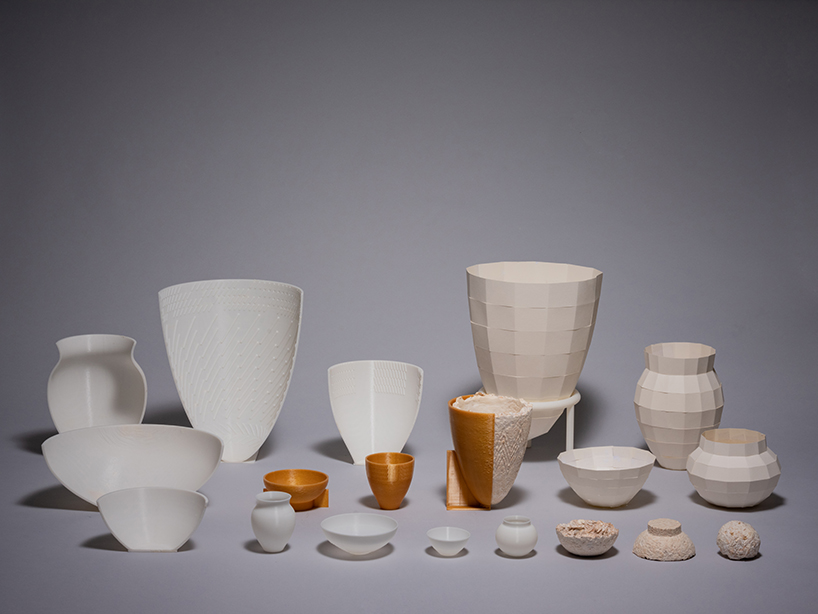
project info:
designers: craft combine
project name: myceliumware
photography: park yoon
designboom has received this project from our ‘DIY submissions‘ feature, where we welcome our readers to submit their own work for publication. see more project submissions from our readers here.
edited by: cristina gomez | designboom
